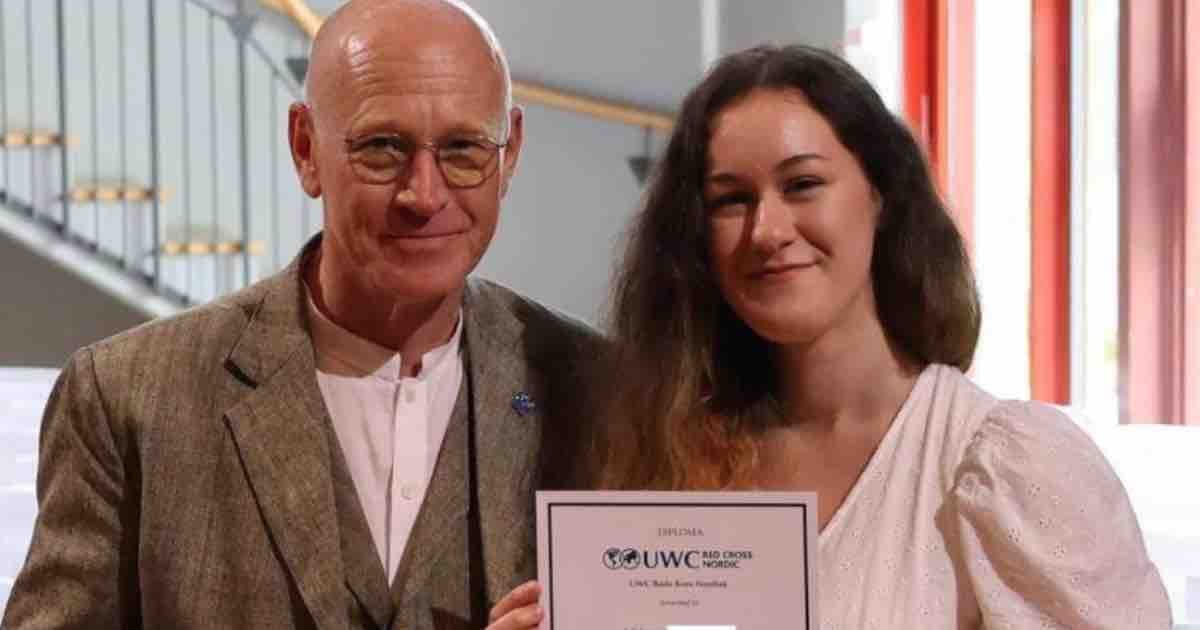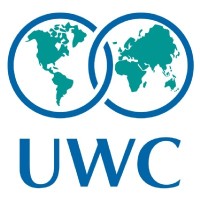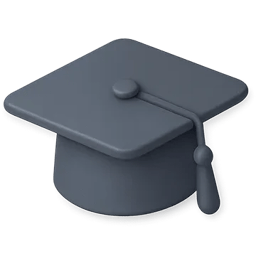Estudié desde agosto de 2021 hasta mayo de 2023 en UWC Red Cross Nordic, que está ubicado en la parte occidental de Noruega y es el UWC más septentrional.
Diría que definitivamente lo que más me gustó de mi experiencia en UWC fue lo bien organizada y de calidad que era la educación. Los profesores estaban muy involucrados y nos ayudaban en cada paso, ofreciendo tutorías después de las clases, respondiendo a nuestras preguntas e incluso teniendo reuniones con nosotros si lo necesitábamos.

Instalaciones y campus
En cuanto a las instalaciones, lo que debes saber sobre la mayoría de las escuelas UWC es que tienen un campus. Pueden tener un campus abierto o algún tipo de edificios residenciales y edificios escolares. Nuestro campus incluía cinco casas y en cada una de ellas vivían alrededor de 40 estudiantes. Se ofrecían numerosas instalaciones. Por ejemplo, mi escuela tenía acceso a una piscina, un gimnasio y un centro deportivo cercano. También teníamos una pequeña biblioteca, que era nuestro lugar de estudio. Y lo que era muy particular de UWC Red Cross Nordic era el hecho de que nuestros edificios escolares estaban abiertos todo el día para que pudiéramos ir allí a estudiar. Por supuesto, teníamos muchos laboratorios, porque la mayoría de los United World Colleges enseñan el Diploma del Bachillerato Internacional y el trabajo de laboratorio está integrado en el plan de estudios. Además, teníamos una casa de repostería y una casa silenciosa. La casa silenciosa era para aquellos que querían estar en un lugar tranquilo, y la casa de repostería era para pasar el rato y divertirse con tus amigos o con la gente de tu residencia.
También en cuanto a las instalaciones académicas, había muchos programas en línea que la escuela pagaba. Teníamos cuentas para muchas plataformas, como JSTOR, In Thinking, y muchos libros en línea. Honestamente, esa es una instalación muy útil en la que tal vez algunas personas no piensan al principio, porque ayudan mucho con la preparación de los exámenes.

Ubicación
UWC Red Cross Nordic es conocido por estar aislado de todo. Estábamos ubicados en un pequeño pueblo llamado Fleke, que quedaba a 20 minutos en autobús de una pequeña ciudad. Podíamos ir allí una vez por semana en los autobuses escolares. Creo que la ventaja de tener esta ubicación remota era el hecho de que nosotros, como estudiantes, estábamos muy unidos en comparación con otros UWCs que tienen un campus abierto. Por ejemplo, UWC Mostar y UWC Adriatic en Italia tienen campus abiertos y, por lo tanto, viven como locales. Siento que para ellos es fácil olvidar el hecho de que están en un internado donde tienen que perseguir la misión de UWC. También fue bastante difícil adaptarse a esto porque solo podías hacer compras una vez a la semana, lo que podía ser muy desafiante para las personas que vienen de grandes ciudades.

Comunidad estudiantil
Al principio, cuando llegamos como estudiantes, UWC tenía su semana de introducción, llena de actividades, donde te presentan a la comunidad del campus y así fue como me relacioné mucho con la gente. Como mencioné, vives en tu residencia con otras personas, así que, para mí, la mayoría de mis amigos eran mis compañeros de casa. Aunque tenemos todas estas barreras culturales y la mayoría pueden ser difíciles de romper, vale la pena hacer amigos y definitivamente puedes crear vínculos duraderos.

Actividades extracurriculares
UWC te permite participar en muchas actividades extracurriculares. Dentro del Diploma del IB, tienes que completar un cierto número de actividades extracurriculares. Nuestro programa extracurricular se llama CAS - Creatividad, Actividad, Servicio. Cada UWC tiene su enfoque. Por ejemplo, UWC RCN se centra en el medio ambiente, los valores nórdicos y la humanidad. Una de mis actividades fue hacer senderismo en Noruega. Fue bastante interesante, porque la mayoría del tiempo caminábamos con gente local. También teníamos un enfoque humanitario, ya que UWC-RCN tiene una asociación con la Cruz Roja y, por lo tanto, necesitábamos hacer un curso de primeros auxilios. Además de estas actividades, hice cerámica y escritura creativa.
Lo que también es bastante interesante sobre UWC son las semanas de aprendizaje basado en proyectos. Normalmente, durante cinco días practicas solo una actividad. Aprendí sobre revistas autopublicadas y tuve la oportunidad de hacer una yo misma. Otra actividad que de alguna manera se quedó conmigo incluso ahora fue el intercambio intercultural. Tenía la responsabilidad de educar a otras personas sobre Europa y fue fascinante aprender sobre otras culturas. Para terminar la parte de las actividades extracurriculares, lo que también es particular de UWC RCN es que teníamos una semana de esquí. Fuimos a esquiar a las montañas noruegas y podíamos esquiar 20 km al día con la vista del glaciar más grande de la Europa continental, lo cual era único. También tuvimos presentaciones de oradores invitados que vinieron a nuestra escuela de Microsoft Noruega, Norwegian Trust Fund y empresas como estas.

Programa académico
La mayoría de los UWC enseñan el Diploma del Bachillerato Internacional, que es muy riguroso. En el IB, tienes que elegir seis asignaturas: lengua y literatura, segunda lengua, ciencias, matemáticas y artes. Luego tienes Teoría del Conocimiento, que es un curso obligatorio, y tienes que escribir dos ensayos y realizar un trabajo de investigación sobre un tema de tu elección. Lo que más me estresó en general fue la elección de asignaturas, porque quería explorar diferentes áreas y terminé eligiendo una combinación muy difícil de materias, pero siento que lo que te ayuda son los profesores y los estudiantes, porque en UWC también tenemos tutores entre compañeros (estudiantes que son muy buenos en una asignatura y enseñan a otros estudiantes).
Al final valió la pena, pero fue bastante difícil manejar todo esto. La parte de investigación del IB fue muy rigurosa, pero me formó muchísimo y se quedará conmigo para siempre. Consistía en un ensayo extendido de 4,000 palabras. Hice investigación diaria sobre mi tema durante seis meses. Los ensayos extendidos son muy valorados por las universidades, particularmente porque su estructura es exactamente como una mini tesis de licenciatura.

Proceso de Solicitud
Para solicitar ingreso a UWC, puedes hacerlo a través de un comité nacional o directamente a la escuela. Solo recibes una beca si aplicas a través de un comité nacional. En mi caso particular, el proceso de solicitud fue bastante simple, pero complejo al mismo tiempo. Teníamos 12 ensayos, que te preguntaban sobre todo lo relacionado con tus actividades extracurriculares, lo que te gusta leer, qué desafíos o problemas ves en tu comunidad, y también sobre tu motivación para asistir a una escuela UWC. Después de pasar esa etapa del proceso de solicitud, entré en la etapa de entrevistas y tuve un día de admisión donde tuvimos que preparar una presentación creativa sobre nosotros mismos. Todavía recuerdo tener esta historia creativa sobre quién soy y presentarme a través de un libro que acababa de dibujar. Luego tuvimos algunos debates y una entrevista con el oficial de admisiones. Allí tuvimos que presentarles una idea que quisiéramos implementar para resolver un problema en el mundo. No voy a mentir, tendrás que trabajar un poco en ello, pero vale la pena.
En un mes desde que descubrí qué era UWC, ya había enviado mi solicitud. No conocía a nadie que pudiera ayudarme, así que lo hice por mi cuenta solo con la ayuda de mi profesora de inglés. Siento que los recursos en mi país de origen son escasos en ese aspecto. Por eso, cuando entré a UWC, fundé la primera ONG en Rumania que aborda particularmente las oportunidades de estudiar en el extranjero durante la secundaria y comencé a publicar recursos a través de la ONG que fundé. Actualmente, está en auge. Tenemos un proyecto enorme, nos expandimos a Moldavia, lanzamos un podcast y es increíble. Se llama Liceu In Strainatate, que es un nombre rumano porque los recursos son principalmente para Rumania.
Al principio, realmente solo quería mostrar a los estudiantes de Rumania y Moldavia que hay opciones infinitas para cada persona y que estudiar en el extranjero no tiene que ser caro. Hay numerosas becas disponibles, como las de UWC, y también hay países como Dinamarca donde puedes estudiar en un internado de manera muy asequible. Este año hemos ayudado a numerosos estudiantes en el proceso de solicitud para ingresar a UWC, internados en Dinamarca y también algunas otras escuelas internacionales en Europa.
Sinceramente, siento que todos los estudiantes que quieren ir al extranjero y perseguir algo deberían, en última instancia, contribuir con algo en su país también. Deberíamos usar los recursos que obtenemos en otros países para ayudar a las comunidades en nuestro país de origen o en algún lugar del mundo. Eso es inspirador y es lo que UWC me ha enseñado: la importancia de ayudar a los demás.
Becas
La beca UWC que recibe un estudiante, si aplica a través de un comité nacional (de su país de residencia o de ciudadanía) total o parcialmente, cubre la matrícula académica, la estancia en un internado, así como las comidas durante 2 años. En algunos casos, también se cubren los vuelos para el estudiante.
Cada año, los comités nacionales reciben varias becas para escuelas UWC específicas. Cuando se publican, también se menciona si son becas completas o parciales. Si el estudiante aplica a través de un comité nacional, no puede elegir a qué escuela asistir, ya que esto es seleccionado para ellos por el comité de selección, de entre las becas existentes de ese comité nacional, basándose en la escuela que mejor se adapte a ellos. Después de que el estudiante sea nominado por un comité nacional, se le pedirá que proporcione documentos oficiales sobre sus finanzas.
También hay costos adicionales que la familia del estudiante debe cubrir. Los principales son los gastos personales relacionados con la comida, para snacks, y artículos personales. Estos costos son altamente individuales, pero una indicación de los costos adicionales también se especifica cuando se publican las becas.
Oportunidades de estudiar en el extranjero
Lo bueno de UWC, especialmente si eres un estudiante de bajos ingresos o buscas estudiar en los Estados Unidos, es que después de estos dos años en el IB y dentro de UWC, tienes el Programa de Becas Davis, que te permite estudiar gratis en universidades asociadas con la Fundación Davis. La mayoría están en los Estados Unidos, pero también hay algunas en Canadá, el Reino Unido, Europa y Hong Kong.

Consejos para futuros solicitantes
En primer lugar, deseo a todos la mejor de las suertes. En general, UWC parece una oportunidad enorme, pero trae consigo una cantidad igual de desafíos. No creo que UWC como institución sea un modelo educativo perfecto. Hay diferentes opciones, pero si te conviene, deberías postularte. Siento que a veces la gente tiene esta imagen ideal en su mente cuando piensan en estudiar la preparatoria en el extranjero. Eso es otra cosa que promuevo a través de mi ONG, Liceu In Strainatate - está bien querer algo mejor de lo que tenías en tu país de origen, pero al mismo tiempo, debes saber que la institución a la que vas a ingresar no va a estar libre de problemas. Es desafiante porque tienes el IB, tantas actividades extracurriculares, tanta gente que desafía tus puntos de vista sobre la vida, y al mismo tiempo, te empujan a una edad muy temprana hacia la independencia.
Permítete cometer muchos errores hasta que descubras lo que te gusta y no te rindas de ninguna manera. En general, cuando termines y des un paso atrás, trata de reflexionar sobre todo lo que ha sucedido en los últimos dos años, y verás los cambios.
En UWC teníamos este dicho: "UWC saca a relucir tus momentos más altos y tus momentos más bajos. Luego te va a moldear, cambiar y permitirte construir tu sistema de valores."




